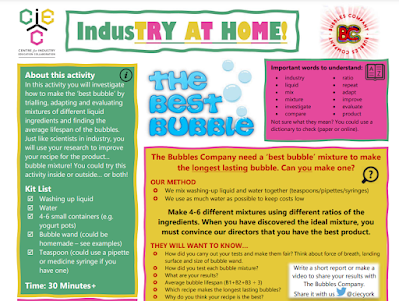 |
This document is FREE to download from the CIEC website
Just as important as teaching the substantive aspects of the
curriculum is teaching the disciplinary aspects as children learn to think and
act like scientists. Teachers tell us that they find it much harder to plan for
progression and to assess children in this area and this is where our free
resource ‘Working scientifically in the primary classroom: Progression of
enquiry skills from EYFS to KS3’ comes in.
Skills can be tracked from one key stage to the next from EYFS to KS3
Skills can be tracked from one key stage to the next. For example, ‘Make links and notice patterns
in their experience’ (Characteristics of Effective Learning in EYFS) is tracked
to ‘With guidance, they should begin to notice patterns and relationships’ (KS1
science program of study) and ‘Begin to look for naturally occurring patterns
and relationships and decide what data to collect to identify them’ (Lower KS2
science programme of study). This enables teachers and subject leads to
systematically track the skills throughout the primary age range and beyond.
 |
I can statements for EYFS
Additionally, there is a poster for each key stage (EYFS, KS1, Lower KS2 and Upper KS2) with ‘I Can’ statements which can be shared with the child, enabling them to be fully involved in their own assessment and progression. |
I can statements for
Upper Key Stage 2 |
The clear layout of this document supports teachers to plan
lessons which enable children to show progress in their learning and add
challenge for those children who are ready for it. It also gives a framework that facilitates
accurate assessment and empowers children to peer and self-assess working
scientifically skills.
This booklet can be downloaded for free from the CIEC
website. Alternatively, if you would
like to buy a hard copy they can be purchased from our online store for £3.20 (including P&P) for a single copy or £26.45
(including P&P) for a class set of 30.







